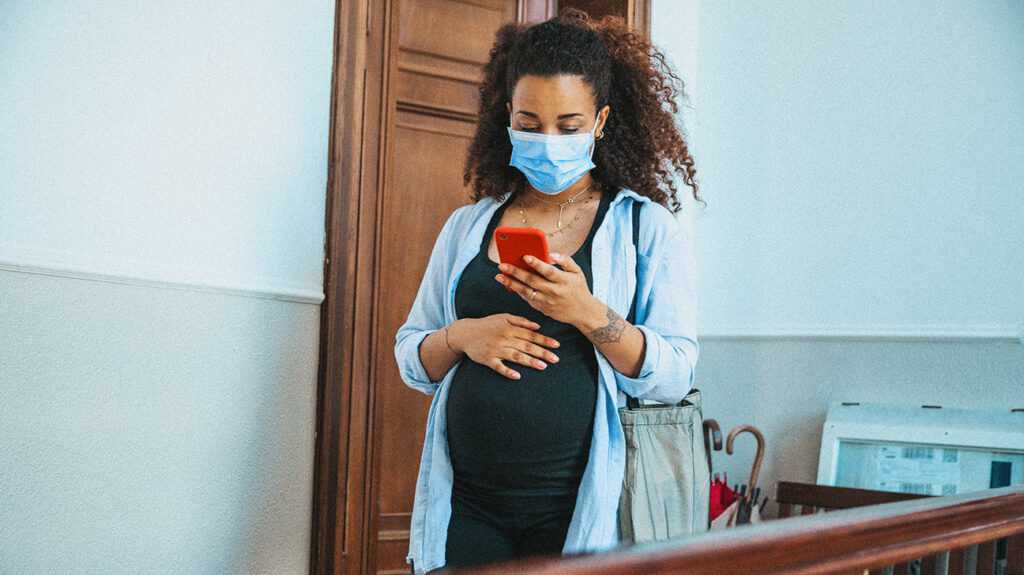Are pregnant women and their babies vulnerable to severe COVID-19?
20 March, 2021

In a full time income systematic analyze and meta-analysis in The BMJ, scientists from the uk, along with international collaborators, continue steadily to collate and analyze emerging proof how COVID-19 affects ladies and their babies during and shortly after pregnancy.
In the latest update, the team confirms that women that are pregnant attending or admitted to a healthcare facility from whatever trigger continue being at a greater threat of serious COVID-19 than nonpregnant females of similar ages.
Preexisting diabetes, chronic hypertension, asthma, smoking cigarettes, gestational diabetes, preeclampsia, being aged 35 years or higher, and having a body system mass index (BMI) of 30 or above were all associated with increased odds of severe COVID-19 and requiring admission to the intensive caution unit (ICU).
Nonwhite ethnicity was associated with a greater odds of ICU admission, however, not necessarily with extreme COVID-19.
Meanwhile, babies of moms with COVID-19 were much more likely to need entrance to the neonatal intensive caution product (NICU). The authors note that this could become due to hospital plans for observation and quarantine of babies in touch with COVID-19.
Dr. John Allotey, the study’s first writer and a lecturer in epidemiology and women’s overall health at the World Wellbeing Organization (WHO) Collaborating Center for Global Women’s Overall health at the University of Birmingham in the U.K., comments: “Pregnant women should be viewed as a higher risk group, especially those discovered to have risk elements, for severe COVID-19 predicated on our findings.”
“Mothers should also end up being reassured that the risks to their babies are incredibly low,” he continues.
Reviewing the evidence
The study team started focus on the examine in April 2020. Because of its earliest iteration, they collated data from obtainable publications between December 2019 and June 2020.
Every week, the researchers looked for newly posted data, which they aimed to review every 2-4 a few months. For the recent upgrade, they added new analyses published up until October 2020.
The review now includes info from 192 studies and 29 unique countries. Of the studies, 115 were fresh editions to the most recent update.
Overall, the data express that 10% of pregnant women who are sometimes admitted to the hospital or visiting the hospital get a positive SARS-CoV-2 test.
Pregnant women are much more likely than nonpregnant women with an asymptomatic SARS-CoV-2 infection.
However, the reason behind this might lie in the technique for testing.
Pregnant persons routinely undergo COVID-19 testing when they attend hospital appointments, while nonpregnant individuals probably have a test if they experience symptoms.
“[The] authentic prevalence of [COVID-19] in pregnancy may very well be lower than the current estimate if all pregnant women, including those not attending the hospital, will be included,” the authors comment in the paper.
While the risk of extreme COVID-19 was greater for women that are pregnant than for nonpregnant girls overall, there were particular risk factors that the team identified.
Included in these are age, BMI, preexisting conditions, as well as circumstances developed during pregnancy.
The researchers discovered that pregnant women or those that had recently given birth were much more likely to die if they had COVID-19 than those that were the same age however, not pregnant. Furthermore, the costs of premature birth and stillbirth had been higher for girls with the disease.
However, the staff caveat that the premature births are likely to be the result of medical decisions to induce early on delivery in those with COVID-19 mainly because the quantity of spontaneous preterm births was exactly like baseline levels. The number of stillbirths across all the studies contained in the analyze was really small (9 out of 5,794 females with COVID-19).
Source: www.medicalnewstoday.com
